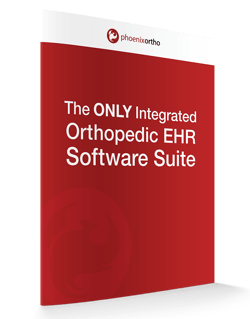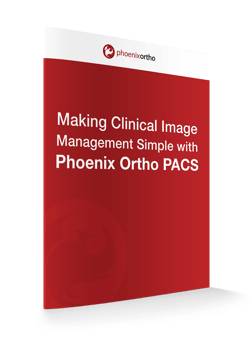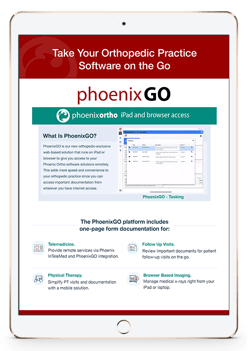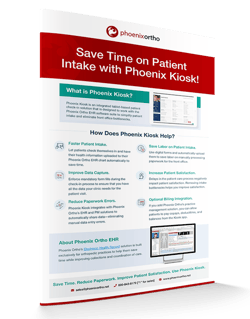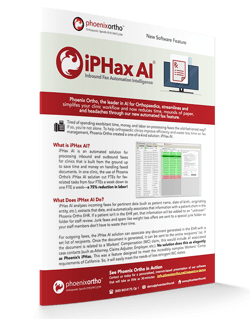In orthopaedic surgery, the global period can be an important consideration for the billing of services. For those who are wondering “What is the global period?” it is, as noted by the Office of Workers’ Compensation, “a period of time starting with a surgical procedure and ending some period of time after the procedure.”
Why is there no definite number of days in this global period definition? That is because the amount of time for a global period may vary depending on the type of procedure and may vary between payers. This fact often makes it difficult for clinicians to accurately track whether their medical procedures fall within the global period for surgery.
Why should orthopaedic doctors care about the global period? What services are included in the global period for surgery? Additionally, how long is the global period for orthopaedic surgeries?
The Three Global Period Timelines
In the Centers for Medicare & Medicaid Services’ (CMS’) Global Surgery Booklet, there are three different levels of “global surgical packages” that CMS recognizes:
- 0-Day Post-Operative Period. This is the classification for extremely minor procedures—ones that have no pre-op period and are not generally billable as a separate service. The most common example cited in the CMS booklet would be endoscopies.
- 10-Day Post-Operative Period. This global period definition is similar to 0-day periods in that procedures that have this classification have no pre-op period and that the visit on the day of the procedure is not billable as a separate service.
- 90-Day Post-Operative Period. This is the classification for major orthopaedic surgery procedures that include pre-operative periods. Although the title says it is a 90-day period, it is technically 92 days. As the CMS booklet states: “Count 1 day before the day of the surgery, the day of surgery, and the 90 days immediately following the day of surgery.”
Because of the similarity in the definitions for operations with 0-day and 10-day global periods, they can be somewhat difficult to discern without research or help from a CMS regulations expert.
What Services Are Included in the Global Period for Surgery?
The global period for an orthopaedic surgery includes several different services that the healthcare provider needs to track as part of the same surgery “package.” The following list is paraphrased from the CMS Global Surgery Booklet:
- Pre-op visits before the actual surgical procedure—part of the reason why 90-day global periods are technically 92 days.
- Intraoperative services that are typically part of the surgical procedure.
- All medical and/or surgical services required during the post-op period because of complications from the surgery that do not require time in the operating room.
- Post-op recovery services and pain management.
- Any supplies that aren’t specifically excluded.
What Services Are Excluded from the Global Period?
The list of services that are excluded from being in the global package for surgery, as noted by the CMS booklet, are:
- The initial consultation to determine whether a major surgery is needed is exempted from being part of the global period.
- Services from other surgeons/specialists, unless both the initial surgeon and the next physician agree on a transfer of care.
- Visits unrelated to the diagnosis which formed the basis of the treatment—unless they occur because of complications.
- Diagnostic tests and procedures.
- Other surgical procedures occurring during the post-op period that are not re-operations or for complications. One important note from the CMS document: “A new postoperative period begins with the subsequent procedure. This includes procedures done in two or more parts for which the decision to stage the procedure is made prospectively or at the time of the first procedure.”
- Treatments for complications requiring a trip to an operating room.
It is important to exercise caution when seeing patients during the global period of any orthopaedic surgery. Even when you are certain that a medical procedure is exempted from the global period, double-checking the procedure can help avoid potential billing errors.
Why You Should Check the Global Period for Patient Care
The primary reason to care about whether a patient is still in the global period following an orthopaedic surgery is that it affects how clinicians report and bill patient visits during that time. Different modifiers need to be attached to the current procedural terminology (CPT) code for a visit that is related to a treatment-related procedure in the global period than one that is exempted or unrelated.
Filing the wrong code or forgetting to attach the appropriate modifier can lead to a charge being rejected. It may also delay payment when a third party payer asks for medical record documentation.
This is part of the reason why Phoenix Ortho’s Electronic Health Record (EHR) software puts a specific notification about the global period on its main dashboard. With a quick glance at the bottom right, clinicians can check how many days have passed since a patient’s last visit and whether they’re in the global period. Because of this, it’s easy to verify whether a modifier should be attached to the CPT code.
Even better—the software will automatically suggests the correct billing code for the visit based on the data collected by the clinician during the visit. Each clinic has the ability to modify the global period based on their local carrier edits as well. This helps to save time spent searching for the right billing codes and virtually eliminates billing code errors—helping to stabilize the orthopaedic practice’s income.
Speak with the Phoenix Ortho team today to learn more about how you can use an orthopaedic-specific EHR solution to enhance patient care.
Schedule a 1:1
Get in touch with Phoenix Ortho to learn more about how you can save time, money, and mouse clicks with an orthopedic-specific EHR.





